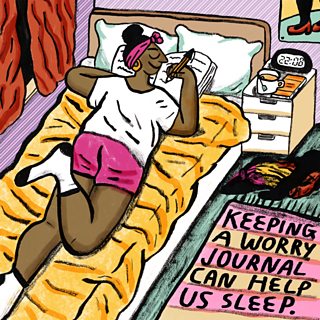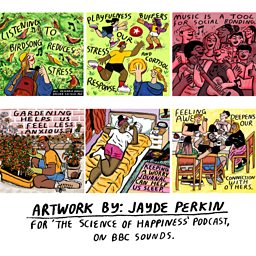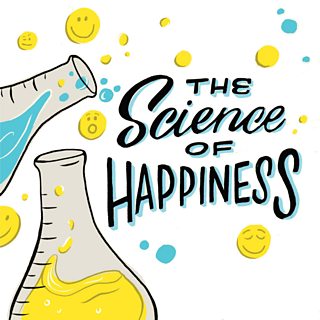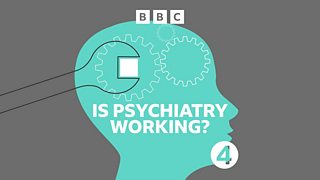Why a good night鈥檚 sleep can help your social life
A good night’s sleep can be hard to come by. When we don’t get enough, our health and wellbeing can start to suffer. Sleep deprivation can lead to kidney disease, diabetes, depression, brain fog, and even difficulty reading other people's emotions.
In the podcast The Science of Happiness, executive producer Shuka Kalantari talks with sleep scientist Eti Ben Simon to learn about how sleep can profoundly impact our social lives.
Sleep loss can make you less sociable.
Dr Eti Ben Simon has conducted various sleep experiments at the Center for Human sleep science at UC Berkeley. She has found that people are less sociable when they are deprived of rest.

“Studies show that people are less empathetic towards others [when they haven’t had sleep]. We're not able to entertain other people's minds, if we are not ourselves calm enough and rested enough,” she says.
In one of her experiments, Dr Eti Ben Simon was able to test how close people wanted to be with others physically after a night of no sleep.
She measured how close an individual wanted to be physically to others after a full night’s sleep, and after a whole night awake. “We found that people preferred for others to stay further away from them when they’d had no sleep.
“There is a network in the brain that works like an alarm system that goes off when someone is near to them. What we found is that on no sleep, this system is highly sensitive. So, people who are sleep deprived prefer a greater distance from others.”
Sleep loss can also make you less interesting to others.
It gets even worse for this tired person. More studies also show that people are less empathetic towards others who aren’t properly rested.
“People who are sleep deprived seem a bit less socially interesting to others. And one of the reasons we think that this is happening is also because they seem more sickly,” she says.
“People who are sleep deprived appear to others as less healthy. And when you think about it in evolutionary terms, it makes sense that you’d want to keep away from someone who might be sick.”
Five tips for finding your natural sleep rhythm, from UC Berkeley neuroscientists:
1. Get at least 30 minutes of outdoor sun a day.
2. Go to bed when you're tired.
3. Don't drink caffeine or alcohol at night.
4. No screens before bed.
5. Keep a worry journal. Spending a couple of minutes writing down what’s causing you anxiety can have a calming effect.

-
![]()
Is Psychiatry Working?
Where did they come from, how strong is the evidence that they work and what will the future of mental health care look like?
-
![]()
Rare Earth
Tom Heap and Helen Czerski tackle a major story about our environment, work out how we got here and meet the people with fresh ideas.
-
![]()
The Allusionist
An entertainment show about how language works and why we should care.
-
![]()
Song Exploder
A podcast where musicians take apart their songs and tell the story of how they were made.





